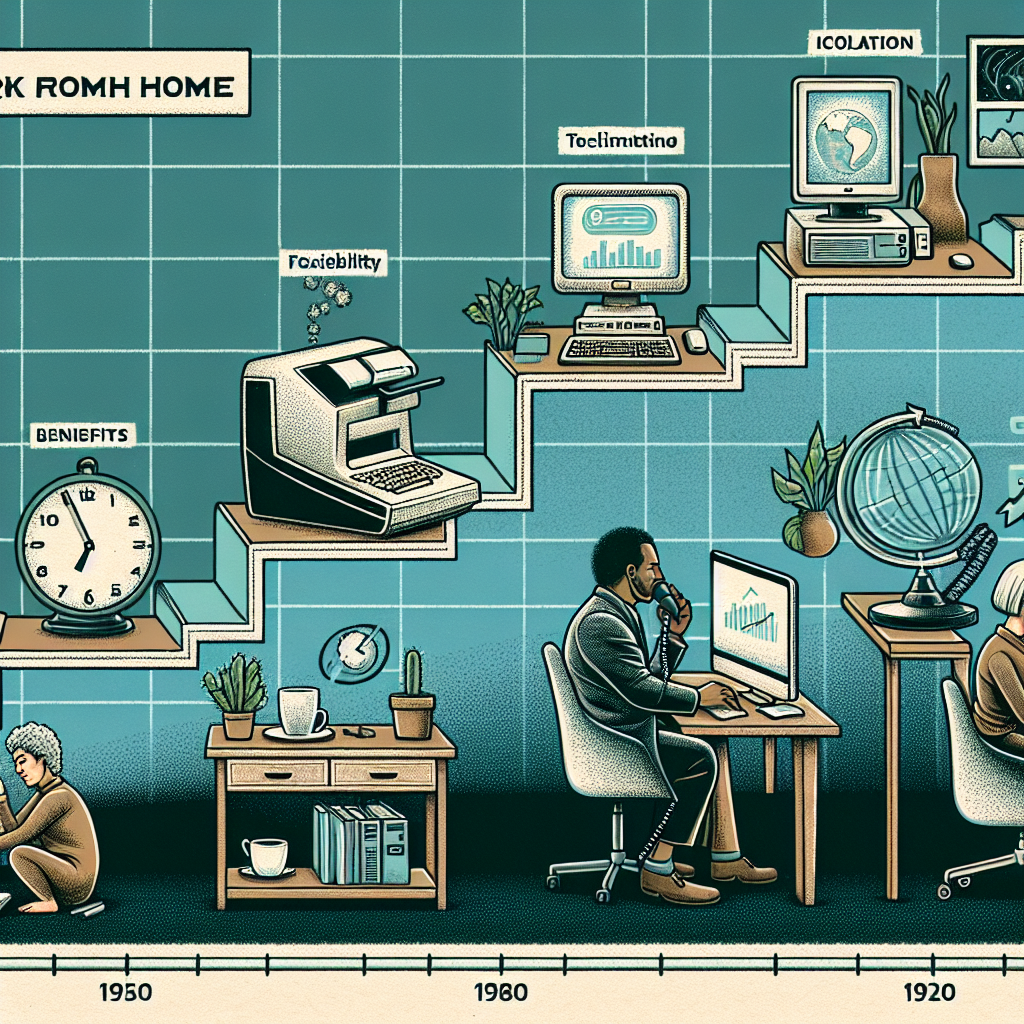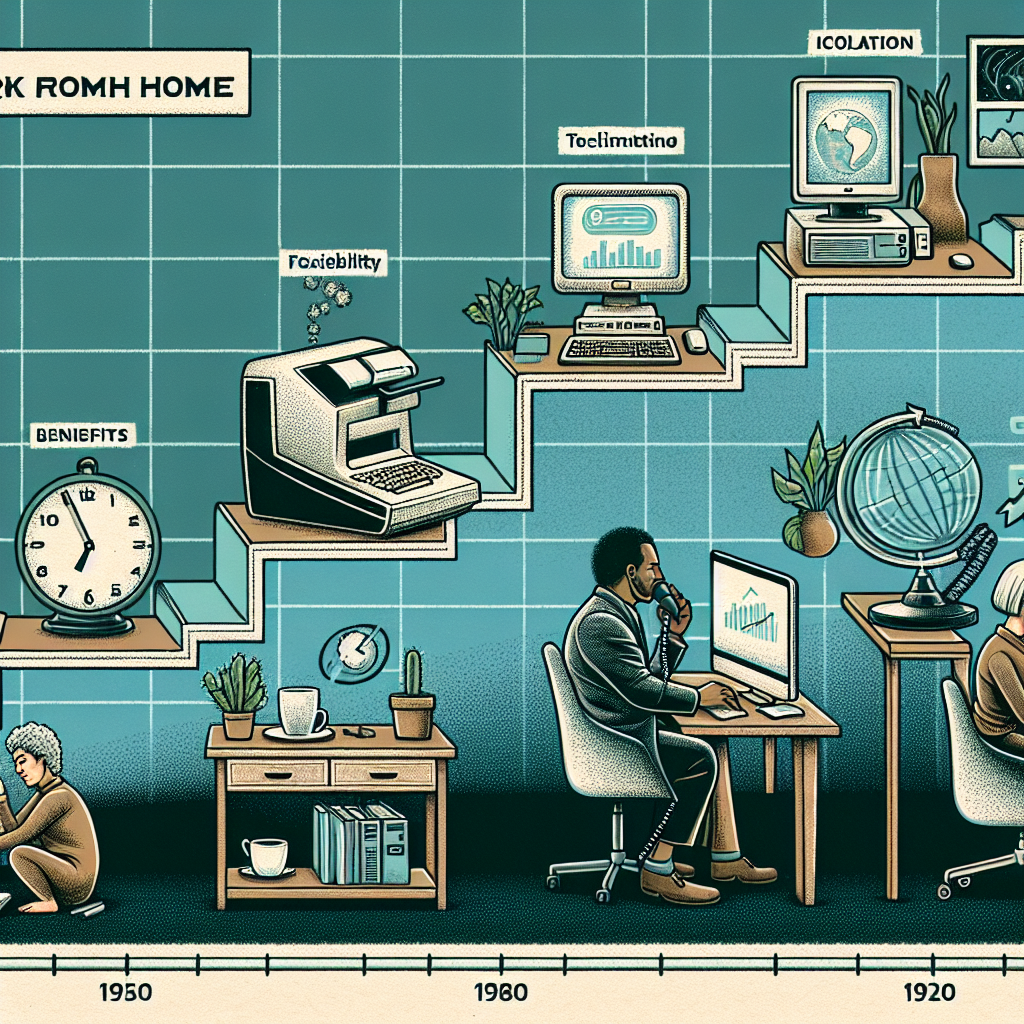Imagine a world where commuting to an office and being tied down to a 9 to 5 job is a thing of the past. Well, my friend, that world is not so far away. As technology advancements continue to reshape our lives, the concept of working from home has swiftly evolved over the years. From traditional companies embracing remote work to the rise of freelancing and digital nomads, the work from home revolution is transforming the way we view employment. In this article, we will explore the fascinating journey of how the work from home concept has evolved and the countless benefits it offers.
The Evolution of the Work from Home Concept
What is Work from Home?
Work from home, also known as remote work or telecommuting, is a concept that allows individuals to perform their job duties from the comfort of their own homes, rather than commuting to a traditional office space. This arrangement typically involves the use of technology and digital tools to facilitate communication and collaboration with colleagues and superiors.
The Rise of Work from Home
In recent years, the work from home concept has gained significant popularity and has become more widespread. This can be attributed to several factors, including advancements in technology, changing work cultures, and the growing demand for flexibility in the workplace.
One of the key drivers of the rise of work from home is the rapid development and accessibility of digital tools and communication platforms. With the advent of high-speed internet, video conferencing software, project management tools, and cloud storage systems, individuals are now able to seamlessly connect with their colleagues and complete their tasks from anywhere.
Another contributing factor is the shift in work cultures and attitudes towards flexible work arrangements. Employers are increasingly recognizing the benefits of allowing their employees to work remotely, such as increased productivity, improved work-life balance, and reduced overhead costs. As a result, many companies have implemented work from home policies and have started to embrace remote work as a viable option.

Advantages of Work from Home
There are numerous advantages associated with the work from home concept. Firstly, it offers individuals the flexibility to set their own schedules and work from the comfort of their own homes. This can be particularly beneficial for individuals who have personal commitments or responsibilities that require them to have a more flexible work arrangement.
Additionally, work from home eliminates the need for commuting, which can be time-consuming and stressful. Without the daily commute, individuals can save precious time and reduce their daily stress levels. Moreover, this can also lead to significant cost savings, as individuals no longer need to spend money on transportation expenses.
Furthermore, work from home can also enhance productivity and job satisfaction. Without the distractions and interruptions that are commonly found in traditional office settings, individuals can focus better on their tasks and accomplish more in a shorter amount of time. This increased productivity can result in a greater sense of job satisfaction and overall fulfillment.
Challenges of Work from Home
While there are numerous advantages associated with work from home, it also comes with its own set of challenges. One of the main challenges is the potential for a lack of work-life balance. Without the physical separation between the home and office, individuals may find it difficult to establish boundaries between their personal and professional lives. This can lead to longer working hours and increased stress levels.
Another challenge is the potential for isolation and decreased social interaction. Working from home can be a solitary experience, with minimal face-to-face interactions with colleagues. This lack of social interaction can have a negative impact on individuals’ well-being and sense of belonging within the organization.
Additionally, working remotely requires individuals to be self-disciplined and motivated. Without the structure and supervision of a traditional office environment, individuals need to proactively manage their time and ensure that they remain focused and productive.

The Future of Work from Home
As the work from home concept continues to evolve, it is expected that remote work will become even more prevalent in the future. The COVID-19 pandemic has further accelerated this trend, with many employers being forced to implement remote work policies to ensure business continuity and employee safety.
The future of work from home will likely involve a hybrid model, where individuals have the flexibility to work from both home and the office. This hybrid approach will allow individuals to benefit from the advantages of remote work, such as increased flexibility and reduced commuting time, while also maintaining some level of face-to-face interaction and collaboration with colleagues.
Furthermore, advancements in technology, such as virtual reality and augmented reality, may further enhance the remote work experience by providing more immersive and interactive ways of connecting with coworkers and replicating the office environment. This could potentially alleviate some of the challenges associated with remote work, such as isolation and reduced social interaction.
In conclusion, the work from home concept has come a long way and has become an integral part of many individuals’ work lives. With advancements in technology and changing work cultures, remote work is expected to continue to evolve and become even more prevalent in the future. By effectively addressing the challenges and leveraging the advantages of remote work, individuals and organizations can truly embrace the benefits of this flexible work arrangement.
